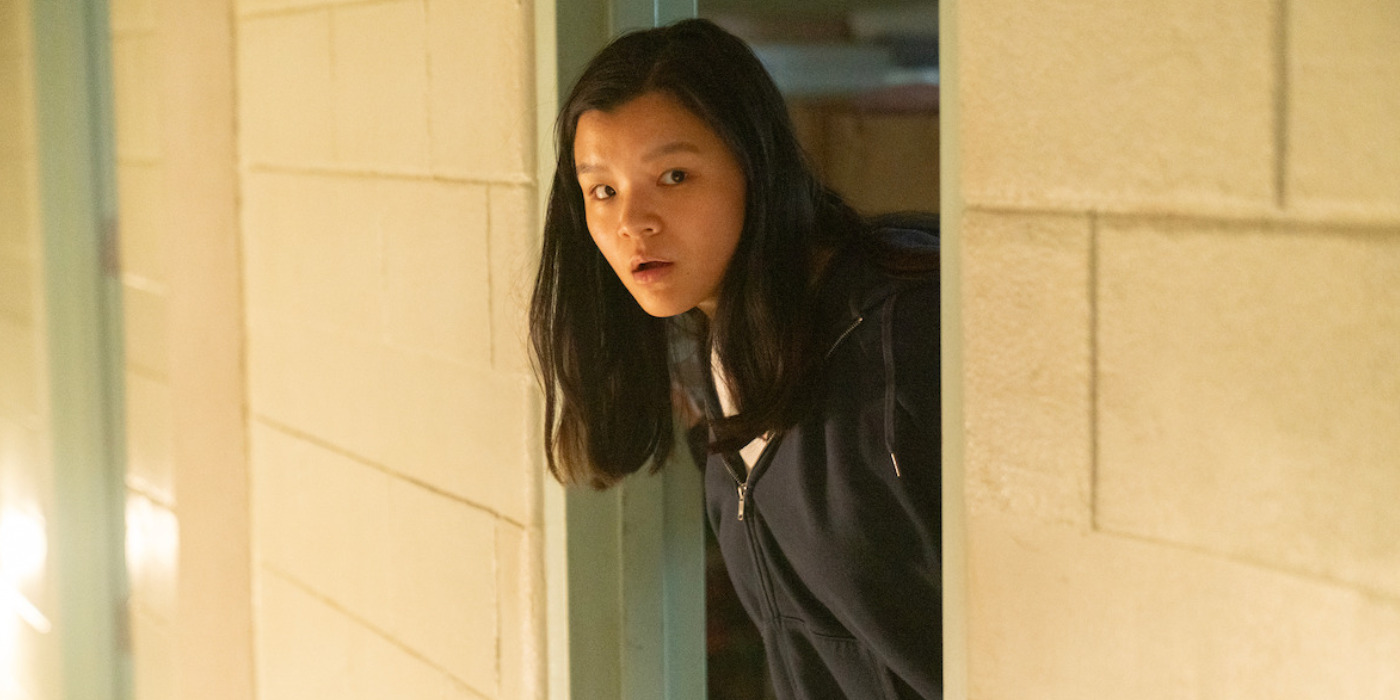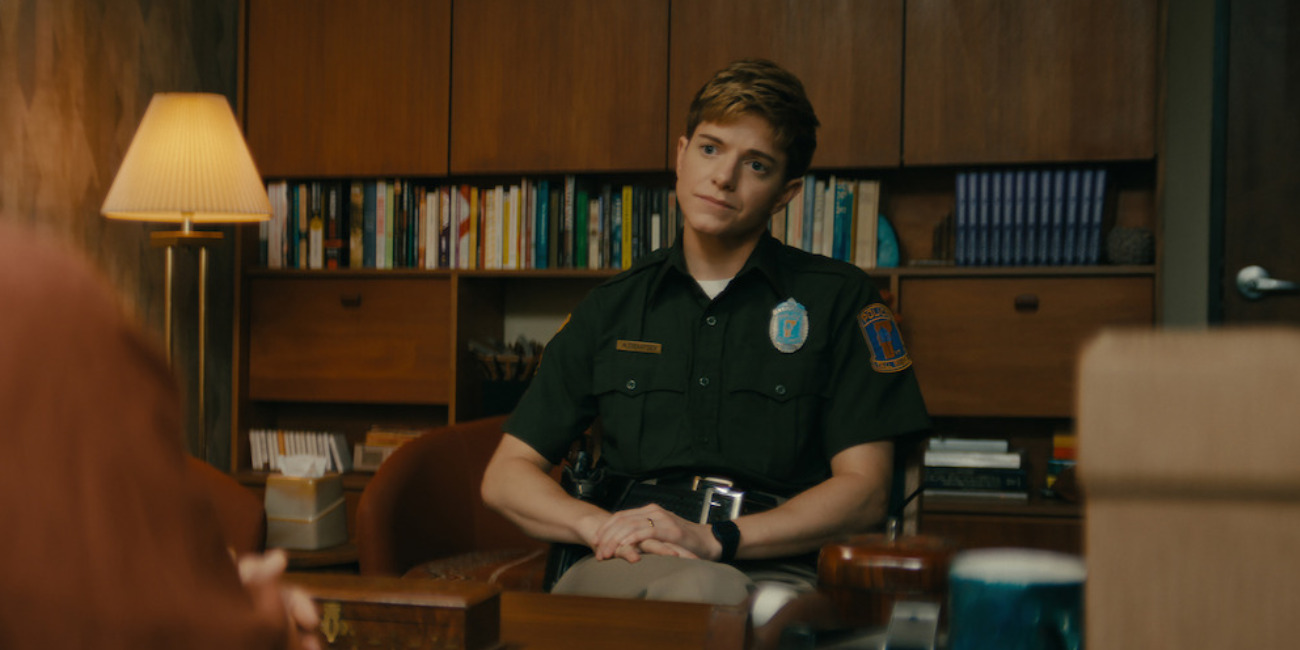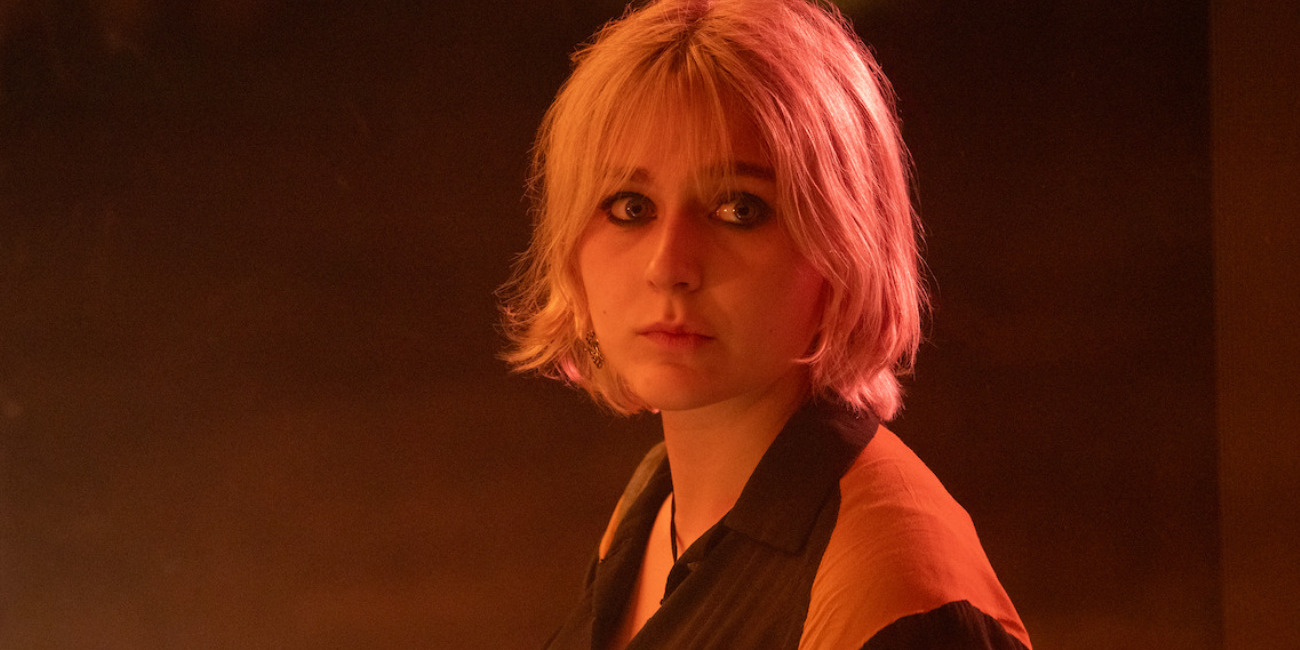Netflix’s ‘Wayward’ is a chilling story about the societal and systemic mistreatment of youth as they transition from adolescence to beyond. In the scenic but eerie town of Tall Pines, Evelyn Wade runs an academy for troubled young kids to be whipped up into shape. Leila and Abbie, Canadian teenagers, have never been the brightest and best in their class. As a result, when all else fails, the adults in their lives decide shipping them off to the infamous Tall Pines Academy might just be their best bet. However, no one knows the real danger that lurks inside the uncanny facility. Alex Dempsey moves into the town with his pregnant wife, Laura, an alumnus of Wade’s institutions.
As the young cop joins the local force and embarks on this new chapter of his family’s life, he can’t help but notice the eccentricities around him. Thus, secrets inevitably threaten to unravel once the Tall Pines Academy comes up on Alex’s radar following one of the students’ worrying escapes. Created by Mae Martin, the mystery thriller show finds a grounded footing in the all-or-nothing depiction of life as a teenager, especially in the context of unusual but normalized youth programs.
Real-Life Anecdotes Inspired Mae Martin to Create Wayward
‘Wayward’ is a captivating show that blends drama with comedy to tell an intriguing story about a small town and its big secrets. The project itself remains a work of fiction credited to the imagination of creator and co-showrunner Mae Martin, who also stars in the production as Alex Dempsey. Yet, even though the characters, settings, and narrative details of the show remain fictionalized, its genesis finds an origin story in real-life inspirations. After years of semi-autobiographical storytelling, Martin wanted to creatively focus on a long-standing interest of theirs: the troubled teen industry. The Canadian artist themselves were a self-identified troubled teen of sorts. Yet, they never had any direct experiences with any youth programs similar to the one depicted in the show. Instead, one of Martin’s close friends, Nicole, was sent to an American troubled teen institute, where she remained for around two years.

This incident ended up sparking the earliest interest in the peculiar industry for the showrunner. Initially, the creator expected to write something adventurous and largely humorous about the subject matter. Nonetheless, this approach quickly changed soon after hearing first-hand experiences about people’s time at such institutions. As per Nicole’s recollection, she was starved, sleep-deprived, and forced into exercises that were both physically and psychologically draining in nature. Thus, the showrunner realized the project required a darker edge that would explore the near-cultish origins and sustaining impacts of such places. Ultimately, in order to delve into these themes and utilize the concept to the fullest, Martin opted for a fictional narrative, characters, and even the central setting of Tall Pines. Yet, despite being a work of fiction, ‘Wayward’s’ real-life roots inform the show’s reality and authenticity.
Wayward Peels Back the Layers on the Reality of the Troubled Teen Industry
While ‘Wayward’ explores a number of realistic themes, its central focus remains on the oftentimes horrifying reality of the troubled teen industry. In the show, Tall Pines Academy becomes the nucleus of this topic as an intense institution that treats its adolescent inhabitants more as prisoners than students. They’re forced to follow handbooks, punished for their indiscretions, and compelled to partake in emotionally abusive and scarring methods of self-help. Although some aspects of this practice are exaggerated and dramatized for the plot’s benefit, the general ethos of the institution remains rooted in reality.

Historically, actual troubled teen institutions and academies are known to be harmful and even abusive toward minors in their care. In 2014, a campaign #BreakingCodeSilence brought attention to such stories. Many survivors of troubled teen institutions spoke out about their adverse experiences, outlining the reality of their abusive practices. From strip searches and restricted communications to even withholding of basic human necessities, the survivors had many horror stories to share. Additionally, there were also accusations of physical, sexual, and mental abuse. Between 2018 and 2021, these accusations reportedly led to the firing and resignation of 13 people in Utah-based youth centers.
Thus, the lucratively funded and often under-regulated industry has and continues to influence and impact the lives of numerous people. In a conversation with The Canadian Press, Toni Collette, who plays the role of Evelyn, spoke about the same. She said, “Society already does a pretty great job of suppressing all kinds of individuality and freedom. But to have an entire industry built around manipulation and making people conform into whatever you want them to be, instead of allowing people to grow into who they are, is both fascinating and horrifying.”
Wayward Presents a Realistic and Relatable Coming-of-Age Story
Despite centering around a hyper-specific experience relating to the troubled teen industry, ‘Wayward’ remains accessible to a wide variety of audiences. In creating the show, Mae Martin wanted to delve deep into the nuanced complexities of one’s transition from their teenage years to young adulthood. “As we get older, we suppress so much of our sensitivity and our critical thinking and even our empathy just in order to survive in the world,” Martin told The Wrap. “So we can’t help but kind of gaslight young people out of their very correct observation that the world is insane, and that there’s a lot of hypocrisy out there.” The narrative examines the reality of this same phenomenon through the layered characters of Abbie and Leila, two currently “troubled teenagers,” Laura, a former alumnus of the same category, and multiple other personalities who exhibit the nuances of the experience.

Additionally, although it remains far from the show’s central focus, the narrative also provides thematic explorations of themes that will resonate with queer fans. The story is helmed by a transgender man, Alex Dempsey, as well as a bisexual teenager, Leila. Tall Pines itself remains open-minded about queer identities, instilling a false sense of acceptance. Even so, it’s impossible not to compare Evelyn’s obsession with ironing out her students’ optimism and individuality with the reality of abusive conversation therapy camps and institutions. Martin elaborated on the same and told NBC, “(In ‘Wayward) there are nuances that are specific to the queer experience that I think queer people will pick up on and relate to, but those things are pretty relatable to anyone who’s experienced any kind of otherness.”


You must be logged in to post a comment.